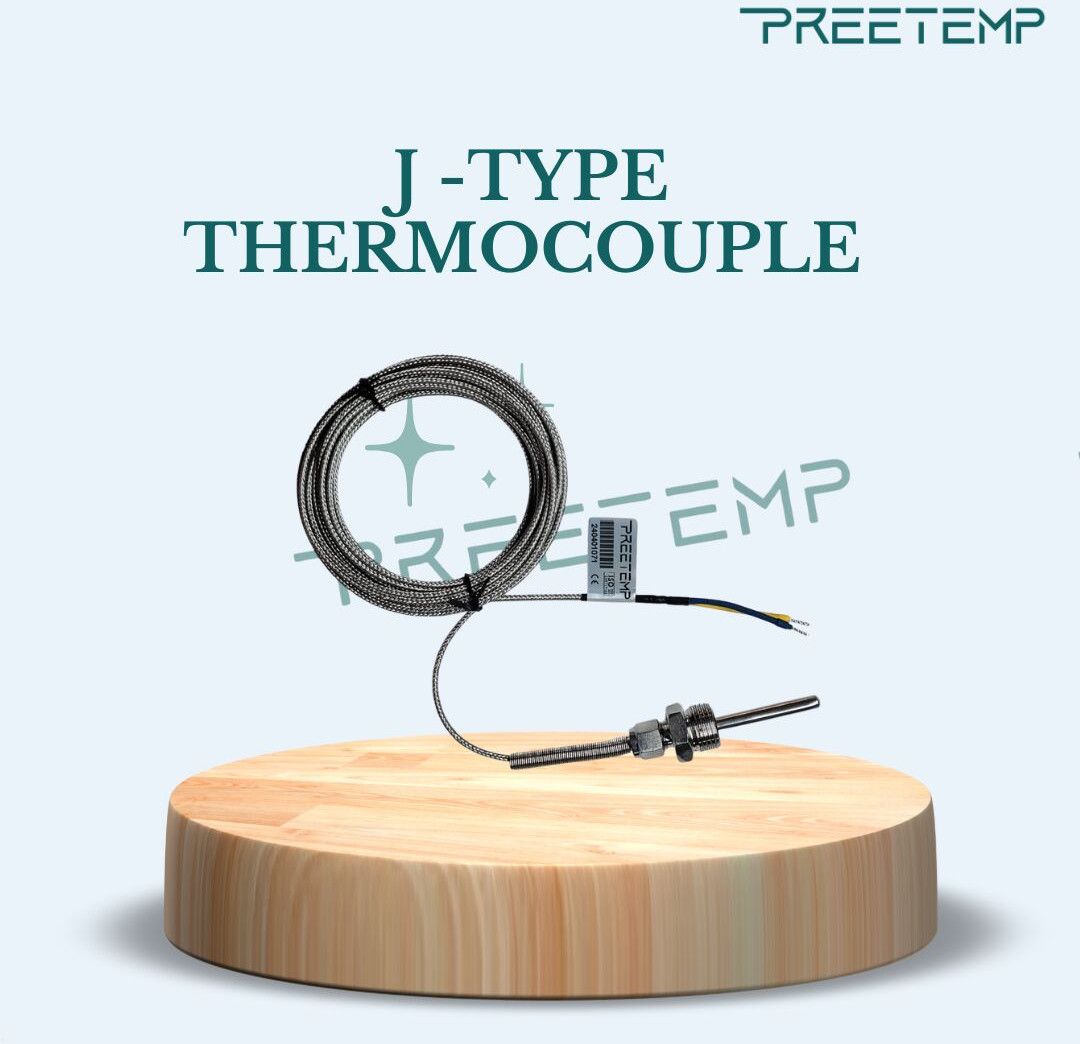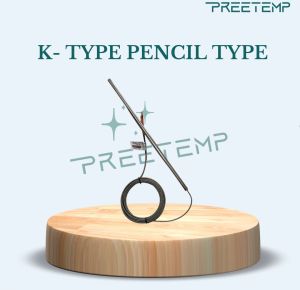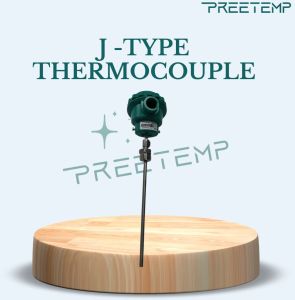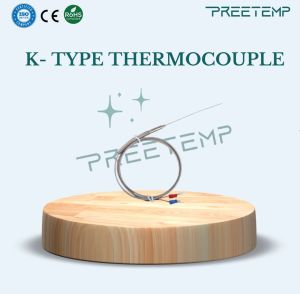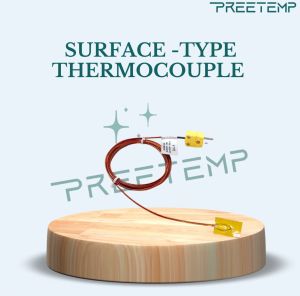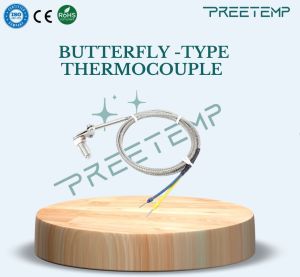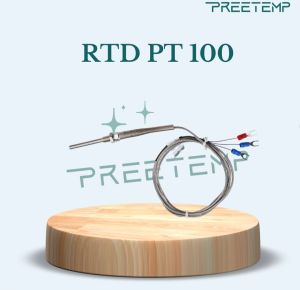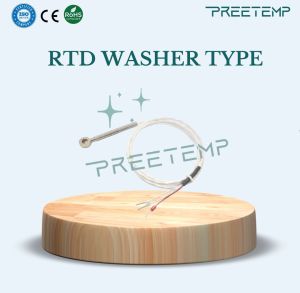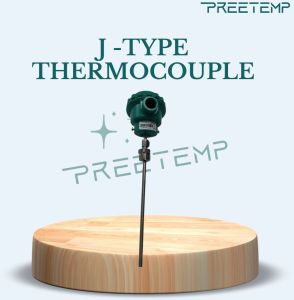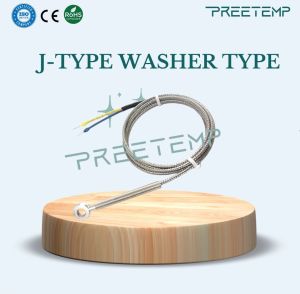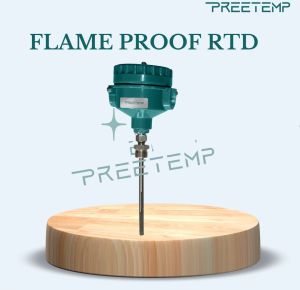| Business Type | Manufacturer, Exporter, Supplier |
| Temperature Range | 0 To 750 Deg C |
| Country of Origin | India |
| Accuracy | +/-1.5 deg C or +/-0.4%) |
| Click to view more | |
Product Details
J-type thermocouple is a widely used temperature sensor that provides accurate temperature measurements in various industrial and laboratory applications. It consists of two dissimilar metal wires that generate a voltage proportional to the temperature difference between the junction and a reference point. Here’s a detailed description of its components, design, functionality, applications, and advantages:
Components and Design
-
Thermocouple Wires:
- Materials: The J-type thermocouple consists of two wires made from iron (Fe) and constantan (a copper-nickel alloy). The combination of these metals produces a measurable voltage when subjected to a temperature gradient.
- Junction: The point where the two wires are joined forms the thermocouple junction, where temperature sensing occurs.
-
Insulation:
- The individual wires are often insulated with materials that can withstand high temperatures and provide electrical isolation. Common insulation materials include ceramic, fiberglass, or high-temperature plastics.
-
Protective Sheath:
- The thermocouple is typically enclosed in a protective sheath made of stainless steel or other resistant materials. This sheath protects the sensor from mechanical damage, chemicals, and extreme temperatures.
- The sheath can be available in various diameters and lengths, allowing customization based on the application.
-
Connector:
- At the end of the thermocouple, a connector (such as a mini or standard thermocouple connector) allows for easy attachment to measurement devices or control systems.
Functionality
-
Temperature Measurement:
- J-type thermocouples can measure temperatures ranging from approximately -40°C to 750°C (-40°F to 1382°F), although they can handle higher temperatures in specific configurations.
-
Electrical Output:
- The voltage generated at the thermocouple junction varies with temperature. This voltage is then measured and converted into a temperature reading using suitable instrumentation.
-
Response Time:
- The response time of a J-type thermocouple can be fast, depending on the design. Grounded junction configurations typically provide quicker response times compared to ungrounded types.
Applications
-
Industrial Processes:
- Widely used in chemical processing, oil and gas, and manufacturing for monitoring temperatures in reactors, furnaces, and heat exchangers.
-
Power Generation:
- Employed in power plants for temperature monitoring in turbines, boilers, and other critical equipment.
-
Food Processing:
- Used for ensuring proper cooking and storage temperatures in food manufacturing, helping to maintain safety and quality standards.
-
Research Laboratories:
- Commonly found in laboratory environments where precise temperature measurements are critical for experiments and testing.
Advantages
-
Good Accuracy:
- They provide reliable and accurate temperature measurements, essential for process control and monitoring.
-
Wide Availability:
- J-type thermocouples are widely available and can be sourced from various manufacturers, ensuring compatibility with many systems.
-
Fast Response Time:
- Suitable for applications requiring quick temperature measurements, especially when configured with grounded junctions.

